Anmol Khurana and Stuti Roy in New Delhi
Controversies seem to have become a constant companion for the Indian telecom sector and 2011 was no different as former minister A Raja and many officials got embroiled in the 2G spectrum scam and newer debates around 3G roaming pacts and licence cancellation came to the fore.
Though the multi-crore 2G scam had come to light last year, it was 2011 which was action-packed as Raja, telecom ministry officials along with many high-profile business heads were put behind the bars for their alleged involvement in the case.
Later in the year, the Telecom Ministry sent notices to operators asking them to discontinue their 3G roaming agreements terming them illegal.
. . .
Telecom sector maintains shimmer despite controversies
Image: Former Telecom Minister A Raja.Photographs: Reuters
The telecom operators had spent over Rs 68,000 crore (Rs 680 billion) last year in 3G spectrum auction and another multi-crore investment was made to put in place the infrastructure to offer the high speed Internet service.
The operators have since then approached the telecom tribunal Telecom Disputes Settlement and Appellate Tribunal and got a stay on the notice, but such decisions put a question mark on the future of investments in the sector.
The government also issued 69 notices to telecom operators during the year for failing to roll out services, pushing the future of many new telecom operators in the lurch.
. . .
Telecom sector maintains shimmer despite controversies
The 2G scam had led to a change of guard last year at the Telecom Ministry with Congress leader Kapil Sibal taking over.
He ensured that the sector, which has been the poster boy for economic growth, continues its growth trajectory in 2011 with a slew of initiatives for the end-consumer.
The announcement of the formulation of a new and comprehensive National Telecom Policy-2011 at the beginning of the year was a step in that direction.
Aimed at infusing greater transparency into the sector, the NTP 2011 also sought to bring in the much needed clarity and promised a consumer-oriented approach.
. . .
Telecom sector maintains shimmer despite controversies
The new policy offered a leaf of hope with its theme of 'One Nation-One Licence' which, if implemented, would help consumers make calls without paying roaming charges and change operator outside their circle while retaining the same number.
The stellar growth of the Indian telecom sector continued with the addition of over 12 million new users every month as operators increased their penetration to the farthest part of the country and improved their network coverage.
Be it introduction of mobile number portability or respite from pesky calls and SMS, it was the telecom subscribers who benefitted as the government rolled out a slew of initiatives ensuring service quality and coverage to over 800 million mobile users in India.
. . .
Telecom sector maintains shimmer despite controversies
After much delay, on September 27, the government finally implemented the recommendations of sectoral regulator Trai putting in place a framework to curb the menace of unsolicited calls and messages.
Subscribers were given the option of choosing to be under the 'Fully Blocked' category, akin to the 'Do Not Call Registry' and prevent a telemarketer to call the person.
However, the user can choose to receive communication from specific sectors like education or retail by choosing the category under the 'partially blocked' category.
In case of violation by registered telemarketers, Trai has recommended penalty ranging between Rs 25,000 to 2,50,000.
. . .
Telecom sector maintains shimmer despite controversies
There is a further provision for disconnection as well.
Another customer-centric service launched during the year was that of MNP, which empowered users to switch operators within a circle without losing their phone numbers.
Launched in Haryana in November 2010, the service was rolled out pan-India in January this year. Next on the cards is an inter-circle MNP, which will allow users to retain their numbers even when they move to a different telecom circle.
Analysts feel the new policy will also important as it will bring in a new set of dynamics since there have been many changes since the last NTP, unveiled 11 years ago in 1999.
From a few million subscribers, the industry has grown into the world's second largest telecom market with over 800 million mobile users and over 12 million monthly addition.
. . .
Telecom sector maintains shimmer despite controversies
The draft NTP-2011 envisages creating a policy framework which ensures reasonable revenue for the government, affordable services to users and robust growth of the sector.
Another important feature of the draft is that licences would be given without spectrum bundled, which has in the past created rift between old and new players over the quantity of airwaves given.
This would also ensure that the government is paid for spectrum at relevant prices and there is no under-pricing of the precious asset.
Also since a lot of licences are coming up for renewal, the extension this time is expected to be for 10 years, instead of 20 years, as part of the new policy.
Another major step the NTP seeks to bring in is liberal mergers and acquisitions norms.
. . .
Telecom sector maintains shimmer despite controversies
With some circles having as many as 12 players, the new rules may actually bring respite to a lot of the new players as well who are also financially stressed in the capital intensive telecom industry.
The draft rules also ensure that monopoly doesn't arise post the implementation of the new rules.
While maintaining that a circle should have at least six operators, the draft says that if the resultant entity (post M&A) has between 35 to 60 per cent market share, the case would be referred to Trai.
Trai, would then, carry out detailed examination to ensure that there is no abuse of market dominance.
Any entity with more than 60 per cent share would 'not be considered as all'.
. . .
Telecom sector maintains shimmer despite controversies
The limit for spectrum holding allowed by the resultant entity has to be 25 per cent of that assigned in a circle.
Industry leaders, including Bharti Airtel, Vodafone and others have been pitching for liberal M&A guidelines to facilitate consolidation in the telecom sector.
They have also been advocating transparent taxation and regulatory framework to make everyday operation easier and enhance investors' confidence in the sector.
However, what could significantly impact the operators' margins in the years ahead would be the proposed imposition of one-time fee for additional spectrum beyond 6.2
Mhz and six-fold hike in 2G spectrum prices.
. . .
Telecom sector maintains shimmer despite controversies
With the incumbent operators' licences coming up for renewal in the next 3-5 years, they may have to shell out Rs 10,972.45 crore (Rs 109.72 billion) for acquiring start-up 2G spectrum as against to Rs 1,658 crore (Rs 16.58 billion) that they had paid earlier.
With regard to the one-time fee, which Trai has pegged at Rs 4,571.87 crore or Rs 45.71 billion (all-India), the government is yet to announce the date from when this levy would be applicable.
The year also saw the low tariff regime ending with telcos hiking prices. Country's largest private telecom firm Bharti Airtel raised tariff by 20 per cent citing increasing inflationary pressure, following which its peers like Vodafone, Idea Cellular and RCom followed suit.
. . .
Telecom sector maintains shimmer despite controversies
Telecom firms aggressively rolled out their 3G services in the country.
After paying over Rs 68,000 crore (Rs 680 billion) for 3G spectrum, operators finally launched their 3G services allowing users access to high speed browsing and download.
Another important development during the year was UK-based Vodafone buying out its partner Essar's 33 per cent stake in their Indian telecom venture -- Vodafone Essar -- for $5.46 billion.
Vodafone has also roped in Piramal Healthcare to buy 5.5 per cent for about $640 million (nearly Rs 2,900 crore or Rs 29 billion) to comply with the Indian laws, which restricts the foreign direct investment limit in the telecom sector to 74 per cent.
. . .
Telecom sector maintains shimmer despite controversies
Image: Telecom Minister Kapil Sibal.The year ahead holds a lot of promise.
With operators looking at introducing broadband wireless access services next year based on the next generation LTE technology, subscribers can look forward to faster downloads.
Also in line with the government's vision of 'broadband on demand', telecom operators are looking forward to providing access to high speed internet to enable all citizens and businesses in rural and urban markets, thereby, ensuring equitable and inclusive development across the nation.
There were many highs and lows during the year for the sector.
Be it pressure on margins or regulatory issues, the industry was on its toes to shrug off the controversy and continued to keep the growth story of the world's second
largest telecom market intact.

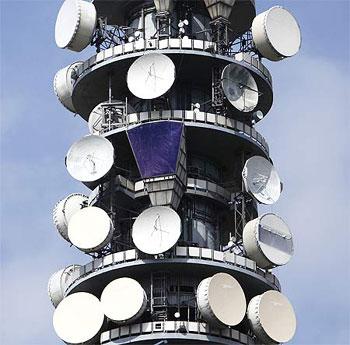
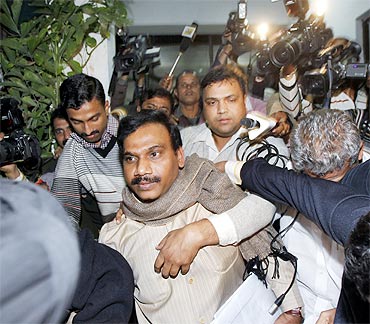
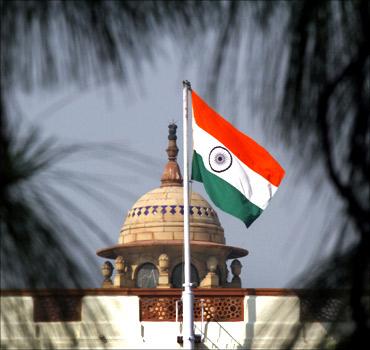
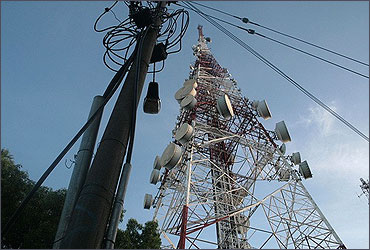







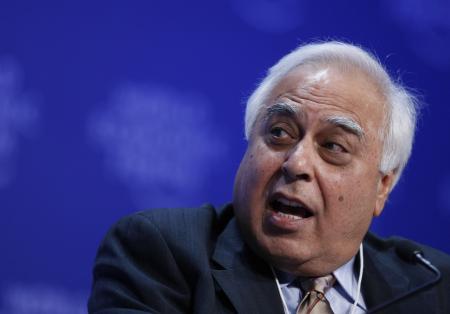
article